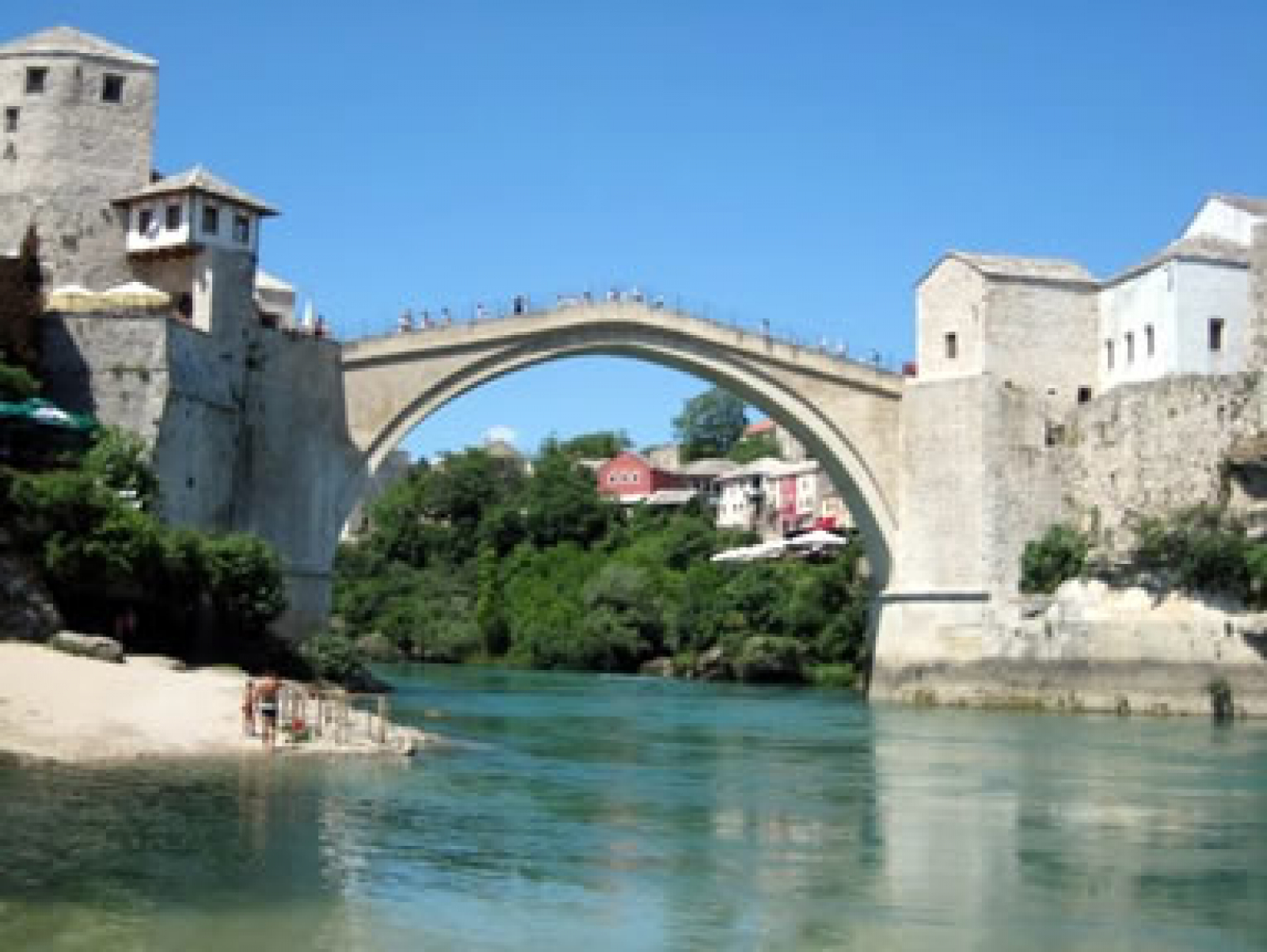
SHARE
The Western Balkans — Albania, Bosnia-Herzegovina, Croatia, Kosovo, Macedonia, Montenegro and Serbia — face ethnic divisions and other political, economic and social problems that continue to challenge stability in the wake of the violent conflicts of the 1990s. But people in the region are seeking to turn the page on a troubled past and look to democratic rule as the foundation for political stability and integration into the European Union and NATO.
Robert Benjamin, NDI's regional director for Central and Eastern Europe, recently discussed political stability in the Western Balkans at the Center for Strategic and International Studies. While Benjamin points to remaining challenges, overall he believes the region is making real progress toward peace, stability and democracy.
Here are excerpts from his remarks.
"My optimistic message is that the region is stabilizing in ways we've not seen before."
"First, for as problematic and destabilizing as the region's core issues are — principally between Serbia and Kosovo on the latter's independence and on Bosnia — the threat of armed conflict has been measurably reduced and perhaps altogether removed. Governments have eschewed militaristic policies, the armed forces are among the most reformed institutions in the region, and the international structures on the ground — both governmental and military — have ensured peace."
"Second, at a political level, there are increasing signs of cooperation between capitals. Most notably, Belgrade and Zagreb are cooperating on a host of bilateral issues, and both are proving themselves generally constructive in their relations with next-door Bosnia. For their size and prominence, Serbia and Croatia in many respects drive the region; the health of their relations sets a tone that others take their cues from. Turkey's recent diplomatic overtures involving Belgrade and Sarajevo, concurrent with what appears to be a bid for stronger economic ties with Serbia, are also welcome. Albania and Serbia are growing closer, as witnessed by the recent visit to Belgrade — and importantly, south Serbia — by Albania's deputy prime minister. Macedonia's and Montenegro's respective diplomatic recognitions of Kosovo, done not without measurable political risk at home — have also contributed to stability."
"Third, the region was conferred a "European perspective" at the 2003 EU Thessaloniki Summit, and is on track to incorporate into the European Union. Most will find their way into NATO, as Croatia and Albania have already done. For Brussels and Washington, the Balkans represent the remaining piece of the European puzzle. And for the Balkans, EU accession and NATO membership provide the ultimate security blanket. So the mutual interest is there. This year's EU visa liberalization for three of the countries, with Bosnia possibly on deck, and NATO's consideration of Membership Action Plan (MAP) status for Bosnia, help people in the Balkans look forward, not to the past."
"Fourth, even the most longstanding and intractable problems the region confronts — conflict between Serbia and Kosovo over the latter's independence, Bosnia's inability to cohere a functional system of government, and Macedonia's persistent name conflict with Greece — are playing out in an environment where they don't represent the existential threats they might have once did. For all of its vituperation, Belgrade insists that it will pursue its Kosovo policy through peaceful recourse to international law. Bosnia's situation, though politically dire, is not hitting up to the level of renewed conflict, and Athens and Skopje are circling around potential formulas concerning a workable solution to the name conflict, although, to be sure, domestic politics in either country do not necessarily favor a quick resolution."
"Finally, buttressing all of this is public opinion in the region. People don't want to go back. They want to get on with things. In poll after poll, jobs and the economy, not interethnic relations or territorial issues, top the list by a wide margin."
"Lest I sound too sanguine, and at the risk of contradicting myself, let me dent this optimistic scenario by mentioning some challenges and complications — although I still retain my core optimism."
Published on June 4, 2010


